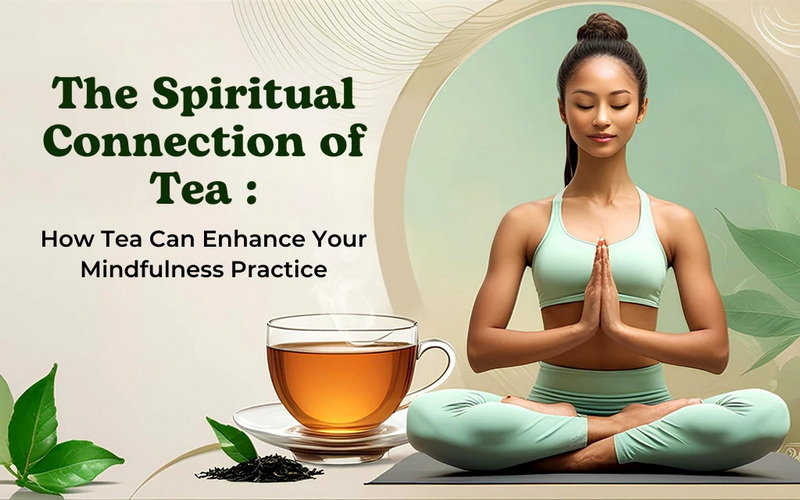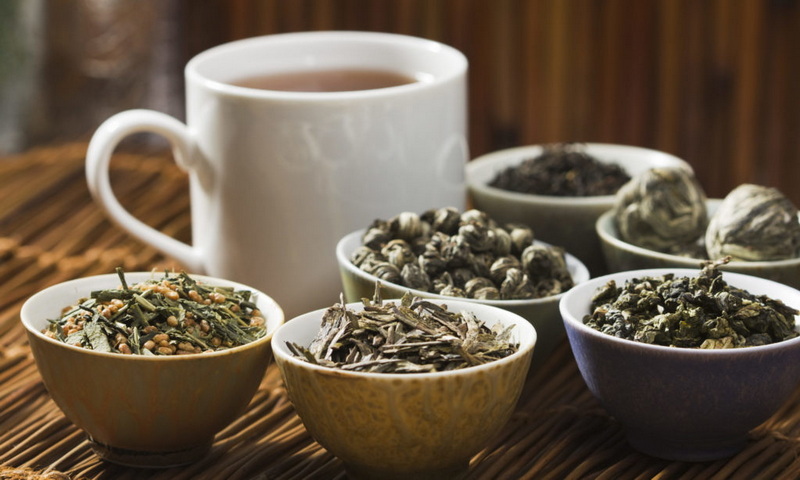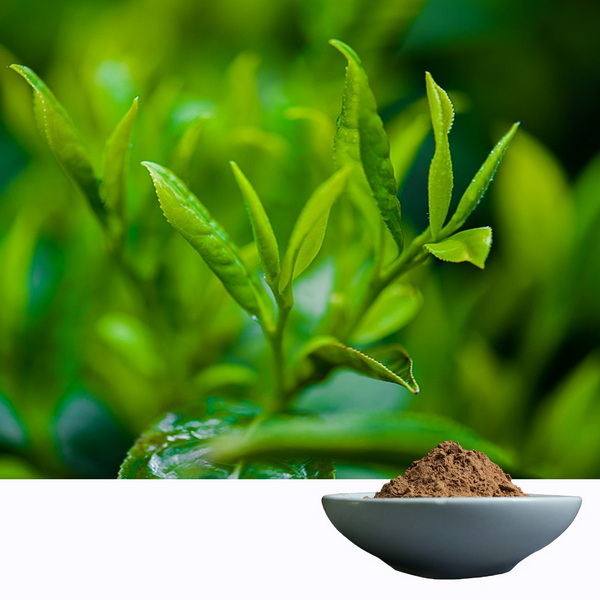Content Menu
● Introduction to L-Theanine
>> Historical Significance of Tea in Spirituality
>> Cultural Significance Beyond Zen
● Scientific Benefits of L-Theanine
>> Cognitive Enhancement
>> Stress Reduction and Mood Improvement
>> Synergy with Other Compounds
>> Neuroprotective Effects
● Practical Applications for Spiritual Practices
>> Incorporating Green Tea into Mindfulness Routines
>> Using L-Theanine Supplements
>> Combining L-Theanine with Other Mindfulness Practices
● Conclusion
● FAQs
>> 1. What is L-Theanine and How Does it Work?
>> 2. How Much L-Theanine is Typically Found in Green Tea?
>> 3. Can L-Theanine Enhance Cognitive Functions?
>> 4. Is it Better to Use Green Tea or L-Theanine Supplements?
>> 5. Are There Any Side Effects of Consuming High Concentrations of L-Theanine?
● Citations:
In the pursuit of spiritual growth and mindfulness, many individuals seek tools that can enhance their practices, fostering a deeper connection with themselves and the world around them. Among these tools, green tea, particularly its L-theanine content, has been revered for centuries in Eastern cultures for its calming yet focusing effects. This article explores whether green tea L-theanine, especially at a concentration of 60%, can enhance spiritual practices by examining its historical significance, scientific benefits, and practical applications.

Introduction to L-Theanine
L-theanine is a non-proteinogenic amino acid found primarily in green tea, known for its ability to promote relaxation, reduce stress levels, and improve focus without causing drowsiness. It is often described as a natural way to achieve a meditative state, making it an attractive supplement for those seeking to enhance their spiritual practices.
Historical Significance of Tea in Spirituality
Tea has been an integral part of spiritual traditions, particularly in Zen Buddhism, where tea ceremonies are conducted to promote mindfulness and tranquility. The act of brewing and drinking tea is seen as a meditative practice that encourages participants to be present in the moment, appreciating the simplicity and beauty of life.
raditional Japanese Tea Ceremony
In these ceremonies, every detail, from the preparation of the tea to the manner in which it is served and consumed, is imbued with spiritual significance. The ceremony itself is a ritual that fosters a sense of community and shared mindfulness among participants.
Cultural Significance Beyond Zen
Beyond Zen Buddhism, tea has played a significant role in other cultures as well. For example, in China, tea has been a part of spiritual and social rituals for centuries, often symbolizing harmony and balance. The cultural significance of tea extends beyond its spiritual uses, reflecting a broader appreciation for the simple pleasures in life.
Scientific Benefits of L-Theanine
Cognitive Enhancement
Studies have shown that L-theanine can improve cognitive functions such as attention and working memory. This enhancement in cognitive abilities can be beneficial for spiritual practices that require focus and mental clarity. By improving concentration, individuals can delve deeper into their meditative states, achieving a more profound sense of inner peace and understanding.
Stress Reduction and Mood Improvement
L-theanine has been proven to reduce stress levels and improve mood by promoting alpha brain waves, which are associated with relaxation and reduced anxiety. This can help individuals maintain a calm and centered state during meditation or other spiritual practices, allowing them to navigate challenging emotions with greater ease.
Synergy with Other Compounds
Green tea contains other beneficial compounds like EGCG, which, when combined with L-theanine, may enhance metabolic benefits and provide additional health advantages. The synergy between these compounds can contribute to overall well-being, supporting both physical and mental health.
Comparison of Green Tea Compounds
| Compound | Benefits |
| L-Theanine | Promotes relaxation, improves focus |
| EGCG | Supports metabolism, antioxidant properties |
Neuroprotective Effects
Recent research suggests that L-theanine may also have neuroprotective effects, potentially helping to protect against neurodegenerative diseases. This aspect of L-theanine highlights its broader health benefits beyond its immediate effects on mood and focus.

Practical Applications for Spiritual Practices
Incorporating Green Tea into Mindfulness Routines
Drinking green tea before meditation can help create a conducive environment for mindfulness by reducing distractions and enhancing focus. The ritual of brewing tea itself can be a mindfulness exercise, encouraging individuals to engage their senses and be present. This mindfulness can extend beyond the act of drinking tea, influencing daily activities and interactions.
Using L-Theanine Supplements
For those who prefer a more concentrated form of L-theanine, supplements can provide a consistent dose, ensuring a reliable effect during spiritual practices. However, it's essential to consult with a healthcare provider before starting any new supplements, especially if you have underlying health conditions or are taking other medications.
Combining L-Theanine with Other Mindfulness Practices
L-theanine can be effectively combined with other mindfulness practices such as yoga, tai chi, or walking meditation. By enhancing focus and reducing stress, L-theanine can help individuals derive greater benefits from these practices, fostering a deeper sense of connection with their bodies and surroundings.
Conclusion
Green tea L-theanine, particularly at a concentration of 60%, offers significant potential for enhancing spiritual practices by promoting relaxation, improving focus, and reducing stress levels. Its historical significance in spiritual traditions, combined with scientific evidence supporting its cognitive and emotional benefits, makes it a valuable tool for those seeking to deepen their mindfulness and meditation experiences.

FAQs
1. What is L-Theanine and How Does it Work?
L-theanine is an amino acid found in green tea that promotes relaxation, reduces stress, and improves focus by increasing alpha brain waves. It works by influencing neurotransmitter activity in the brain, leading to a state of calm alertness.
2. How Much L-Theanine is Typically Found in Green Tea?
A single cup of green tea typically contains between 25 to 60 milligrams of L-theanine. However, this amount can vary based on the type of tea and brewing method.
3. Can L-Theanine Enhance Cognitive Functions?
Yes, L-theanine has been shown to improve cognitive functions such as attention and working memory, which can be beneficial for spiritual practices requiring mental clarity.
4. Is it Better to Use Green Tea or L-Theanine Supplements?
Both green tea and L-theanine supplements have their advantages. Green tea provides a holistic experience with additional health benefits from other compounds like EGCG, while supplements offer a more concentrated dose of L-theanine for consistent effects.
5. Are There Any Side Effects of Consuming High Concentrations of L-Theanine?
Generally, L-theanine is well-tolerated, but high doses may cause mild side effects such as dizziness or stomach upset in some individuals. It's advisable to start with lower doses and consult a healthcare provider if necessary.
Citations:
[1] https://www.mindbodygreen.com/articles/l-theanine-everything-you-need-to-know-about-this-plant-based-powerhouse
[2] https://pmc.ncbi.nlm.nih.gov/articles/PMC8080935/
[3] https://www.goldentipstea.com/blogs/all/the-spiritual-connection-of-tea-how-tea-can-enhance-your-mindfulness-practice
[4] https://pmc.ncbi.nlm.nih.gov/articles/PMC4728665/
[5] https://clubmagichour.com/blogs/news/sacred-alchemy-the-transformative-power-of-green-tea-matcha-for-mind-body-spirit
[6] https://cn.iherb.com/blog/l-theanine/1446
[7] https://www.lifeextension.com/wellness/superfoods/l-theanine-foods
[8] https://pmc.ncbi.nlm.nih.gov/articles/PMC6836118/






























